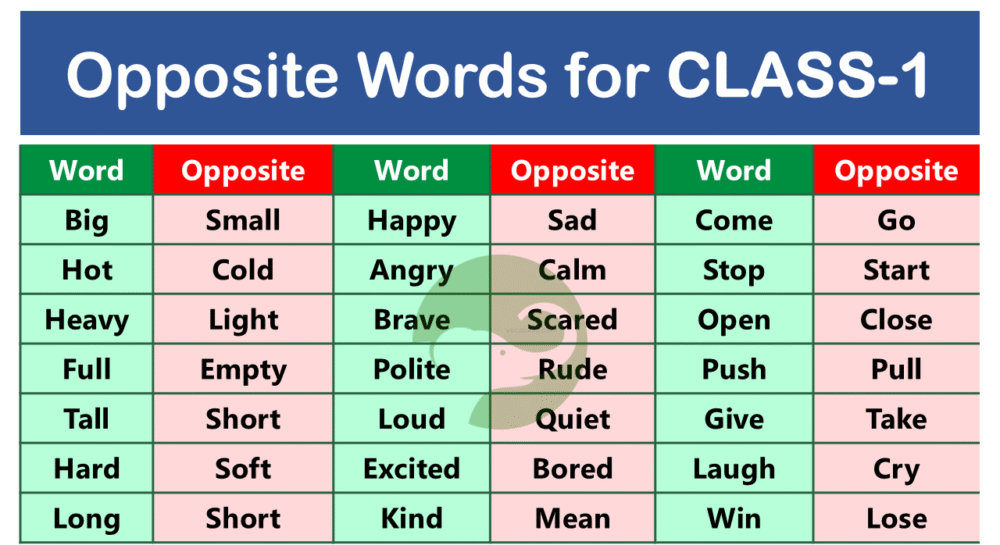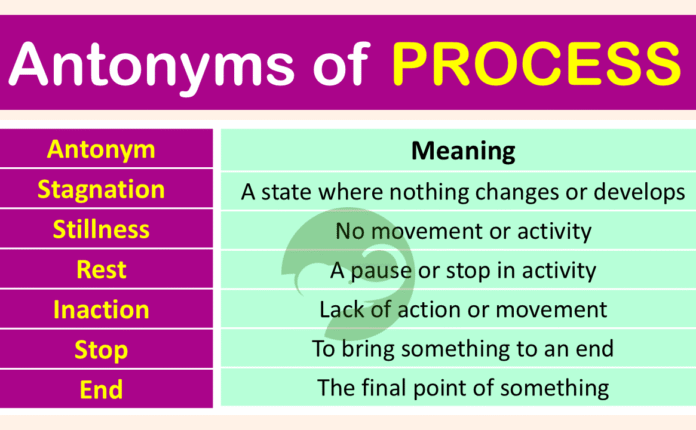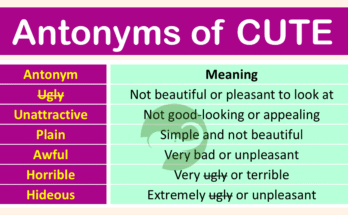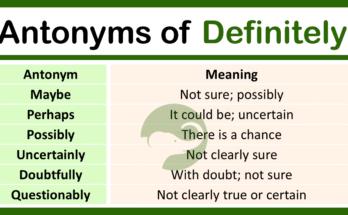Learning opposite words is very important for young learners. Opposite words are words that have completely different meanings. For example, hot and cold are opposite words. Knowing these words helps children to speak and write clearly, and it improves their vocabulary quickly.
This article will provide a complete list of simple opposite words that are easy to learn and remember for Class 1 students.
Opposite Words for Class 1
Opposite words, also called antonyms, are words with opposite meanings. They are used in English to make sentences interesting and clear. For example:
- Big and small
- Fast and slow
Opposite words can be used in different ways:
- Describing objects – e.g., The box is heavy, but the bag is light.
- Describing emotions – e.g., She is happy, but he is sad.
- Describing actions – e.g., He runs, but she walks.
Why Learn Opposite Words is Important for Class 1 Students
- Helps in speaking and writing clearly.
- Improves reading and vocabulary skills.
- Makes learning English fun and easy.
- Helps in understanding meanings of words faster.
Common Opposite Words for Beginners
Below are simple opposite words for Class 1 students, divided into easy categories for better understanding.
Opposite Words for Everyday Objects
| Word | Opposite Word |
|---|---|
| Big | Small |
| Hot | Cold |
| Heavy | Light |
| Full | Empty |
| Tall | Short |
| Hard | Soft |
| Long | Short |
| Clean | Dirty |
| New | Old |
| Fast | Slow |
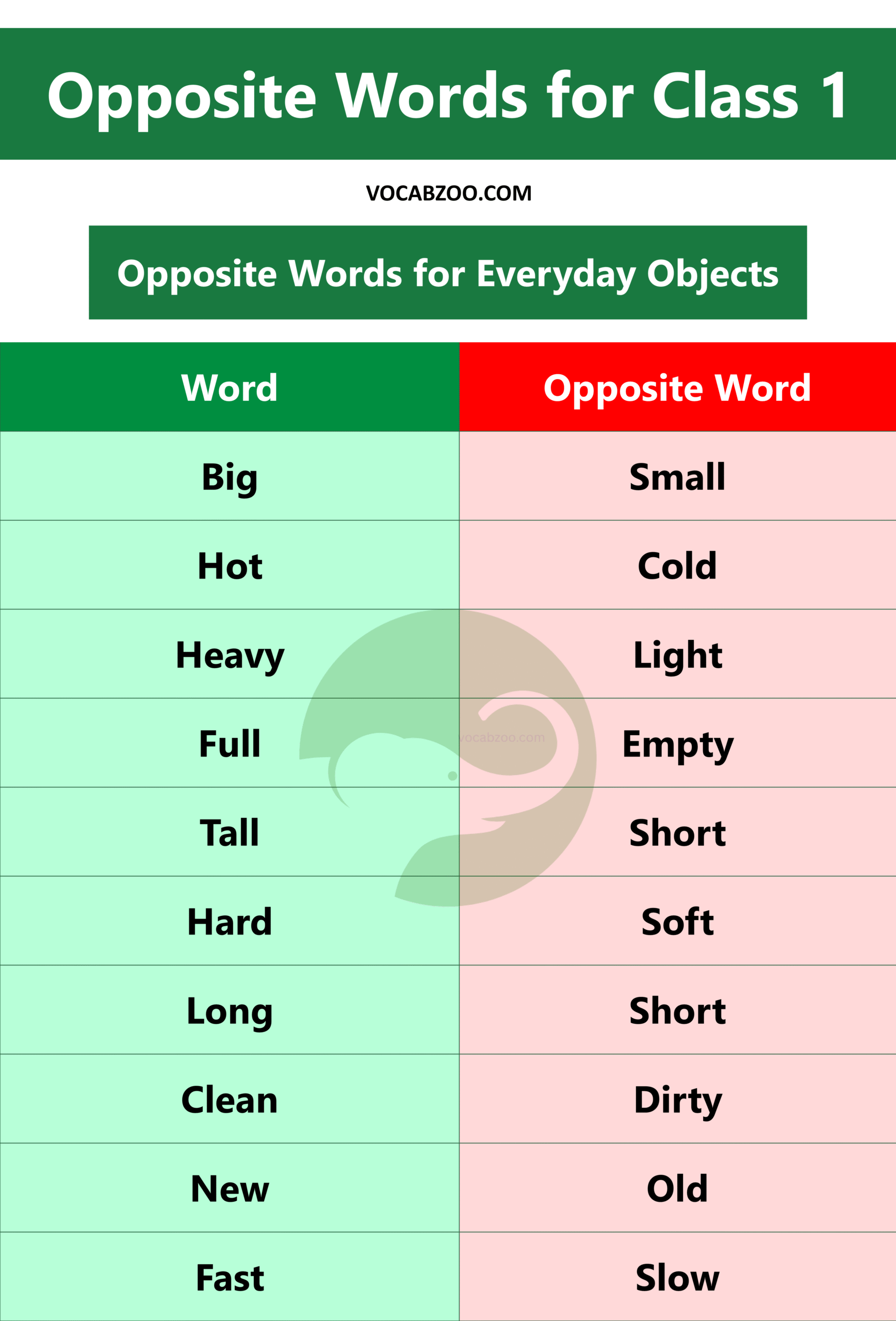
Opposite Words for Emotions
| Word | Opposite Word |
|---|---|
| Happy | Sad |
| Angry | Calm |
| Brave | Scared |
| Friendly | Unfriendly |
| Polite | Rude |
| Loud | Quiet |
| Excited | Bored |
| Kind | Mean |
| Confident | Shy |
| Cheerful | Gloomy |
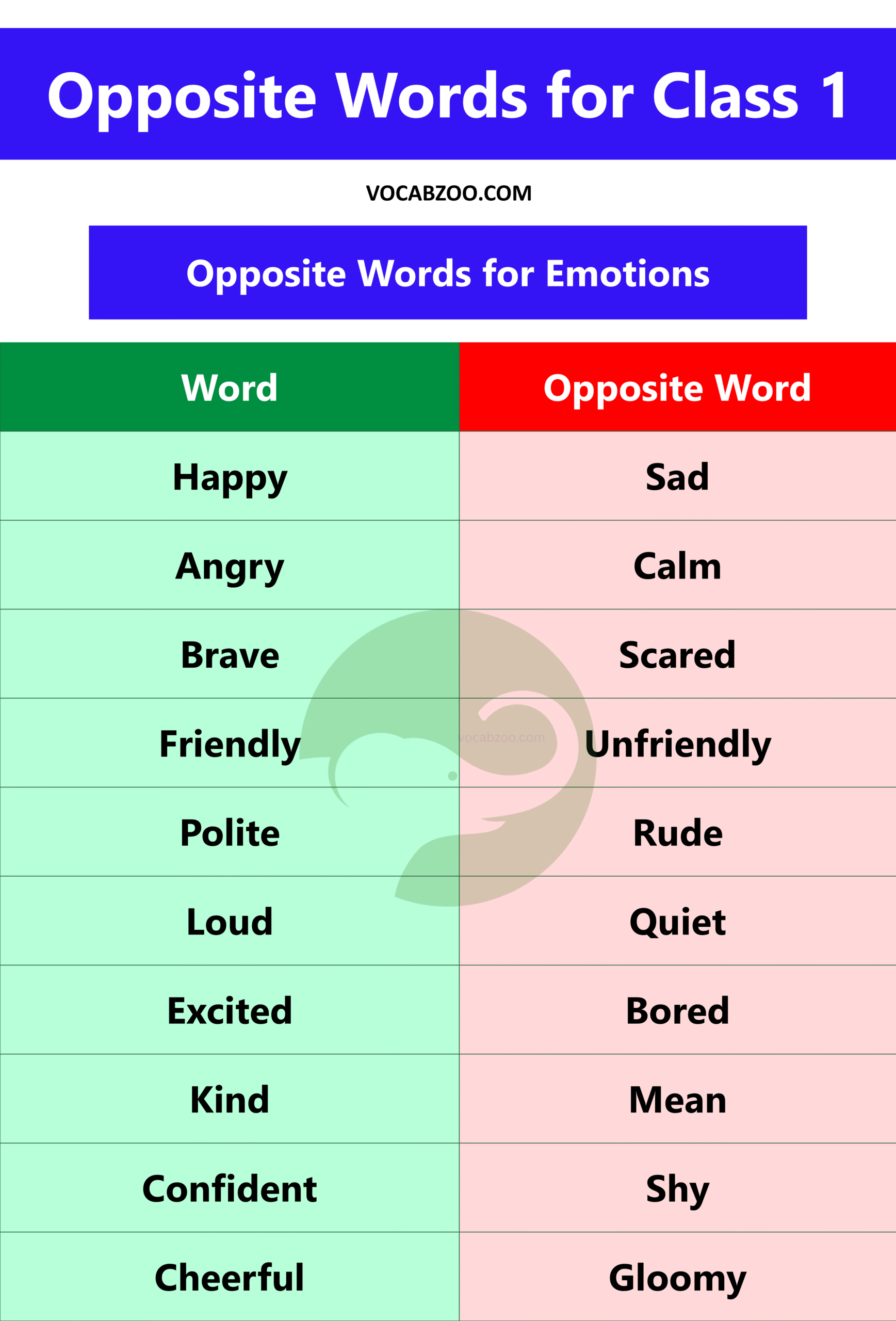
Opposite Words for Actions
| Word | Opposite Word |
|---|---|
| Come | Go |
| Stop | Start |
| Open | Close |
| Push | Pull |
| Give | Take |
| Laugh | Cry |
| Win | Lose |
| Sit | Stand |
| Arrive | Leave |
| Build | Destroy |
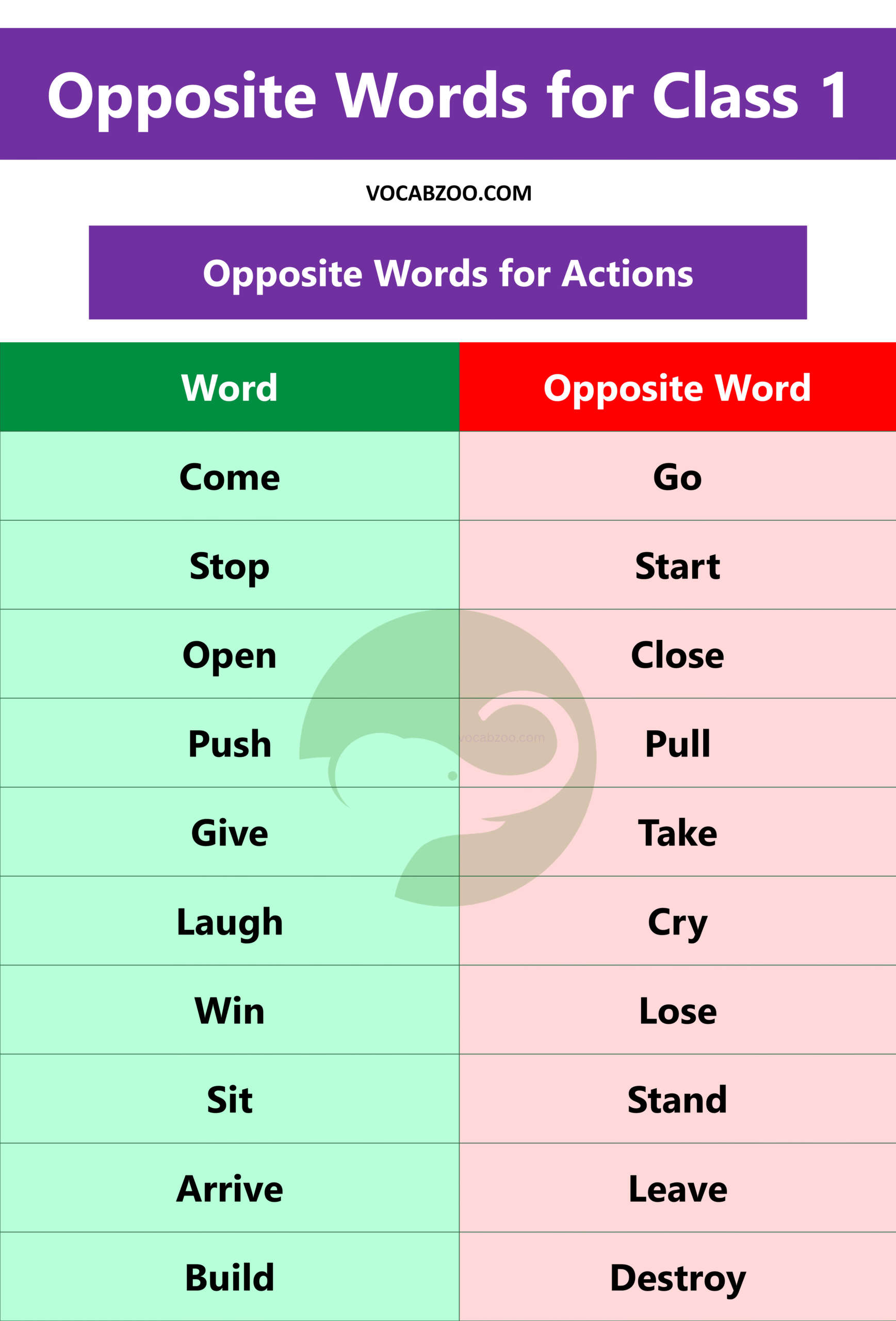
Opposite Words for Describing People
| Word | Opposite Word |
|---|---|
| Young | Old |
| Rich | Poor |
| Tall | Short |
| Friendly | Unfriendly |
| Honest | Dishonest |
| Strong | Weak |
| Smart | Stupid |
| Brave | Cowardly |
| Lazy | Hardworking |
| Polite | Rude |
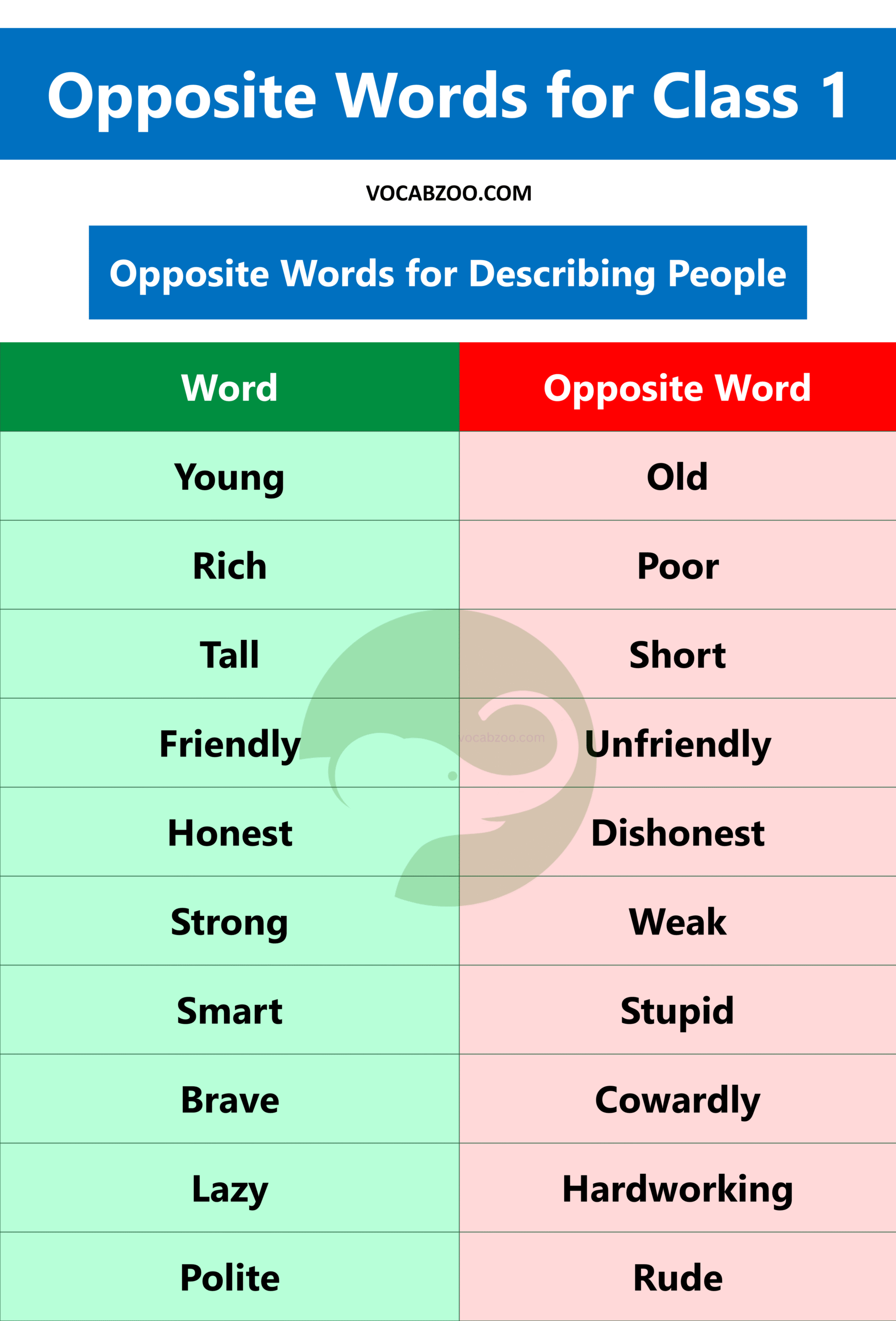
Opposite Words for Describing Places
| Word | Opposite Word |
|---|---|
| Near | Far |
| Empty | Crowded |
| Clean | Dirty |
| Bright | Dark |
| Wide | Narrow |
| High | Low |
| Open | Closed |
| Hot | Cold |
| Safe | Dangerous |
| Quiet | Noisy |
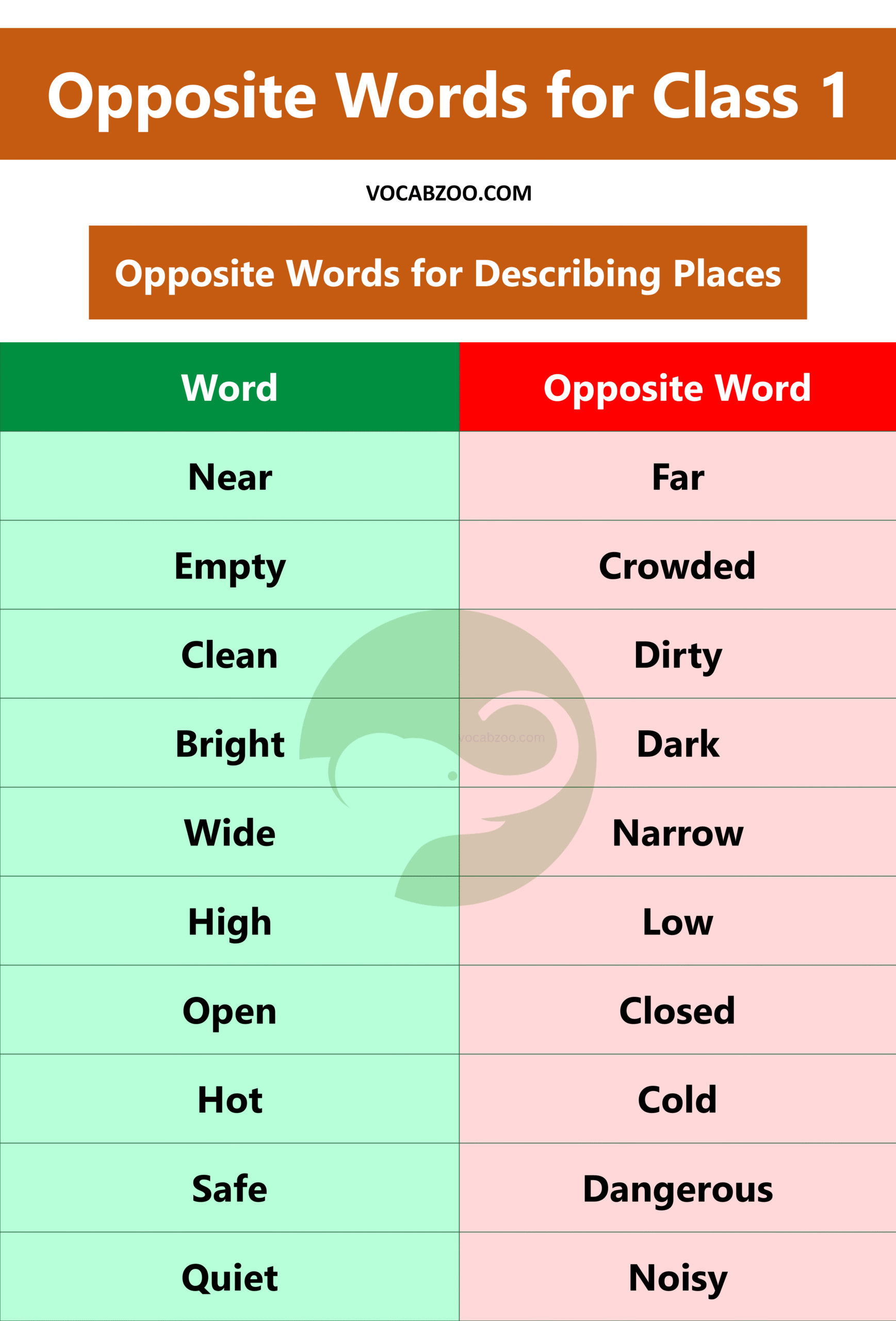
Words and Their Opposite in Sentences
Here’s the list of 20 English words with their opposites in everyday conversation sentences for kids:
Big: This box is big.
Small: My pencil is small.
Hot: The tea is hot.
Cold: The ice cream is cold.
Heavy: This bag is heavy.
Light: My notebook is light.
Full: The bottle is full.
Empty: The cup is empty.
Tall: The tree is tall.
Short: My friend is short.
Hard: The rock is hard.
Soft: The pillow is soft.
Clean: My hands are clean.
Dirty: The shoes are dirty.
New: I have a new book.
Old: This toy is old.
Fast: The car is fast.
Slow: The turtle is slow.
Happy: I am happy today.
Sad: She feels sad now.
Angry: He is angry with his brother.
Calm: She is calm after the game.
Brave: The boy is brave.
Scared: The girl is scared of the dark.
Come: Please come here.
Go: It’s time to go home.
Open: Open the door, please.
Close: Close the window.
Push: Push the swing gently.
Pull: Pull the rope slowly.
Give: Give me the pencil.
Take: Take the book from the table.
Sit: Please sit on the chair.
Stand: Stand in a line.
Near: The shop is near our house.
Far: The school is far from here.
Loud: The music is loud.
Quiet: Please be quiet in class.
Bright: The sun is bright today.
Dark: The night is very dark.
Tips to Remember Opposite Words Quickly
- Learn 5–10 words every day.
- Use them in simple sentences.
- Make a picture chart to remember faster.
- Play opposite word games with friends or family.
- Repeat words regularly to make them stick in memory.
Opposite words are an important part of English learning for Class 1 students. They help in speaking, reading, and writing clearly. Using simple tables, categories, and daily practice, children can easily learn and remember these words. Start with the basic words listed above and slowly move to more advanced words.
By learning opposite words, children become confident and fluent in English while enjoying the process.
Read More
